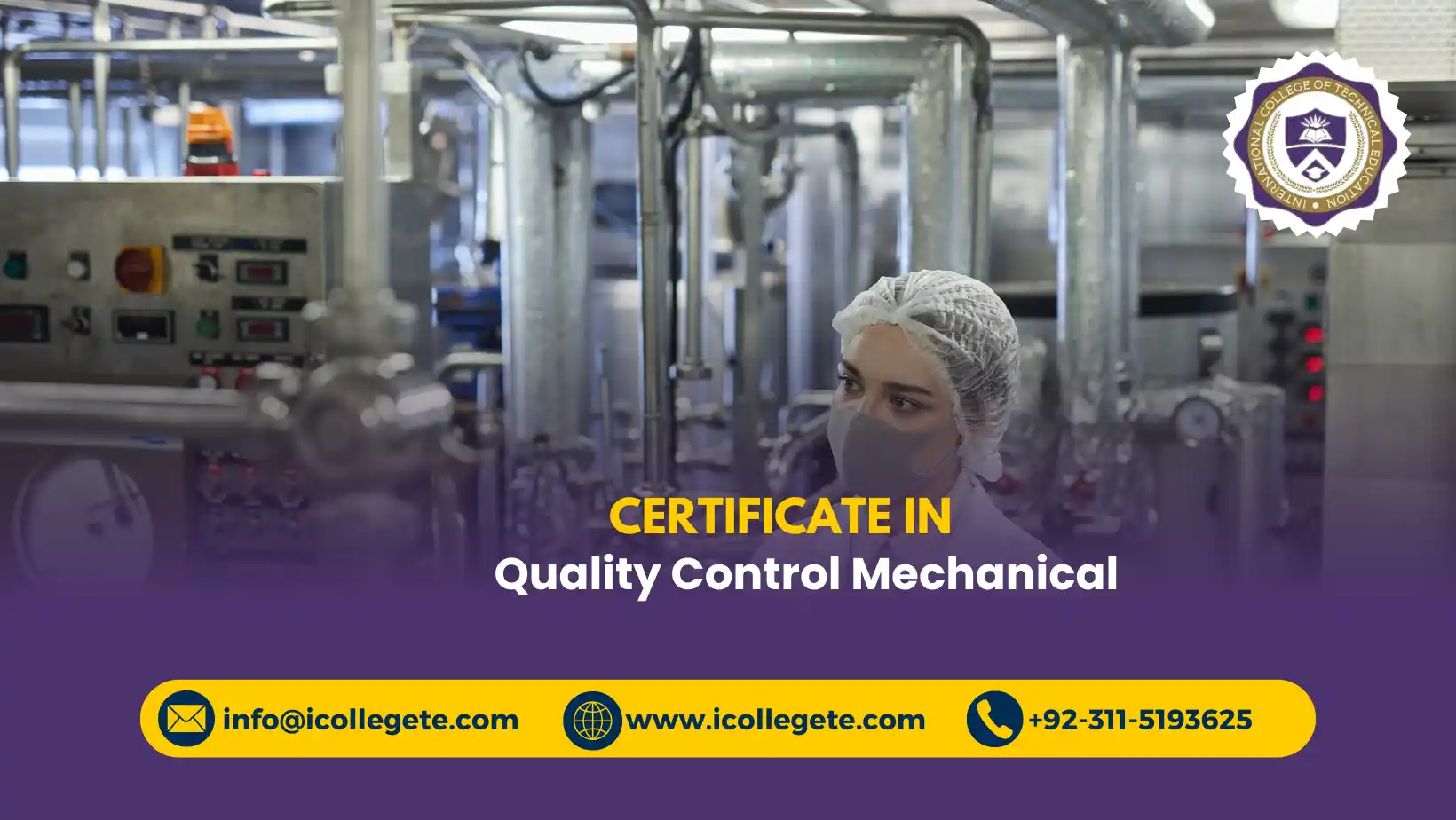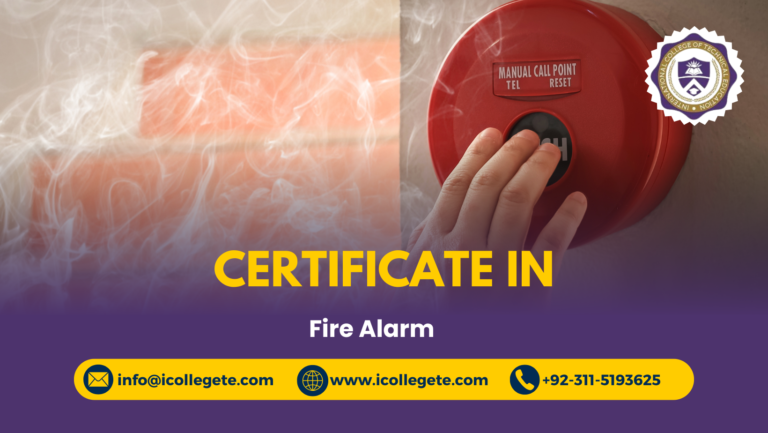The mechanical engineering industry relies heavily on quality control to ensure the safe, efficient, and durable operation of machinery, equipment, and systems. In a rapidly evolving industry, professionals with the knowledge and skills to assess and maintain high standards of quality are in high demand. The Quality Control Mechanical Course in Gujrat offers specialized training to help individuals gain expertise in mechanical quality control, providing a strong foundation for careers in various industries, including manufacturing, automotive, and energy.
The Quality Control Mechanical course is designed to provide students with comprehensive knowledge of quality control processes in mechanical engineering. This course covers the techniques used to ensure that mechanical systems, parts, and processes meet strict industry standards. Students will gain practical skills in material testing, inspection, quality assurance, and troubleshooting, along with an understanding of industry standards and safety regulations. Upon completion, students will be equipped to contribute to mechanical projects with a focus on quality, safety, and efficiency.
The course offers a blend of theoretical lessons and hands-on training, covering the key principles and practices of quality control in mechanical engineering. Topics range from materials selection and testing to understanding quality control tools and techniques, as well as learning about quality assurance processes in mechanical projects. The course also provides insight into the regulations and standards required to ensure the safety and reliability of mechanical systems.
Typically lasting between 3 to 6 months, the course combines classroom instruction with practical training and assessments to ensure students are prepared to handle real-world quality control challenges. This program is perfect for individuals seeking to advance their careers in mechanical engineering and quality assurance.
Study Units
The Quality Control Mechanical Course includes the following key study units:
- Introduction to Quality Control in Mechanical Engineering
- Mechanical Materials Testing: Metals, Alloys, and Composites
- Quality Assurance Processes and Tools
- Dimensional Inspection and Tolerance Measurement
- Mechanical Testing Techniques: Hardness, Tensile, Impact, and Fatigue Testing
- Quality Control in Manufacturing Processes
- Non-Destructive Testing (NDT) Methods
- Industry Standards and Certifications (ISO, ASME, ASTM)
- Troubleshooting Mechanical Issues and Root Cause Analysis
- Health, Safety, and Environmental Regulations in Mechanical Work
Learning Outcomes
Upon completion of the course, students will be able to:
- Understand the key principles of quality control in mechanical engineering and manufacturing
- Apply various material testing methods to assess the quality of mechanical components
- Use tools and equipment for dimensional inspection and measurement to ensure precision
- Implement quality control measures in manufacturing and assembly processes
- Conduct non-destructive testing (NDT) to evaluate the integrity of materials and components
- Identify and address mechanical issues, utilizing root cause analysis to improve system performance
- Ensure compliance with industry standards and regulatory requirements
- Apply safety and environmental regulations to mechanical systems and projects
Course Benefits
- Specialized Skills: Gain valuable, industry-specific skills in mechanical quality control that are in high demand
- Practical Training: Learn through hands-on experience in material testing, dimensional measurement, and quality inspections
- Enhanced Career Opportunities: The course opens doors to a wide range of job opportunities in industries such as manufacturing, automotive, aerospace, and energy
- Industry Standards Knowledge: Learn how to implement and adhere to international standards such as ISO, ASTM, and ASME, making you more competitive in the global job market
- Certification: Upon successful completion, students will receive a certification in mechanical quality control, enhancing their qualifications and employability
- Career Growth: The course provides a clear pathway for career advancement, whether you’re starting a new career or looking to specialize in quality assurance within mechanical engineering
Who Is This Course For?
The Quality Control Mechanical course is designed for:
- Mechanical Engineers looking to specialize in quality control
- Technicians and professionals already working in mechanical engineering who wish to enhance their skills
- Graduates in mechanical engineering or related fields who want to pursue careers in quality assurance or control
- Manufacturing Professionals looking to develop expertise in ensuring quality in mechanical processes and production lines
- Anyone interested in a career in quality control within the mechanical engineering sector, including automotive, manufacturing, and aerospace industries
Future Progression
Upon completion of the Quality Control Mechanical course, graduates have multiple career progression opportunities:
- Employment: Work as a Quality Control Engineer, Quality Assurance Technician, or Mechanical Inspector in manufacturing, automotive, or aerospace industries
- Advanced Certifications: Obtain further certifications in specialized areas such as non-destructive testing (NDT), Six Sigma, or ISO 9001 quality management systems
- Leadership Roles: Transition into supervisory or managerial roles, such as Quality Control Manager or Production Manager, overseeing quality control processes and teams
- Consulting: Start a consultancy specializing in mechanical quality control, offering expertise to businesses in manufacturing or product design
- Further Studies: Pursue higher education, such as a Master’s degree in Mechanical Engineering or Quality Management, for additional career advancement
- Entrepreneurship: Open your own mechanical engineering consultancy or quality control services company, offering solutions to various industries
The Quality Control Mechanical Course in Gujrat is an excellent choice for those looking to build a successful career in mechanical engineering with a focus on quality assurance. As industries continue to demand higher standards in safety, efficiency, and precision, professionals with expertise in quality control are essential. This course equips students with the practical skills, technical knowledge, and certifications needed to excel in the mechanical industry, making it an ideal step for anyone looking to specialize in quality control and improve their career prospects.





